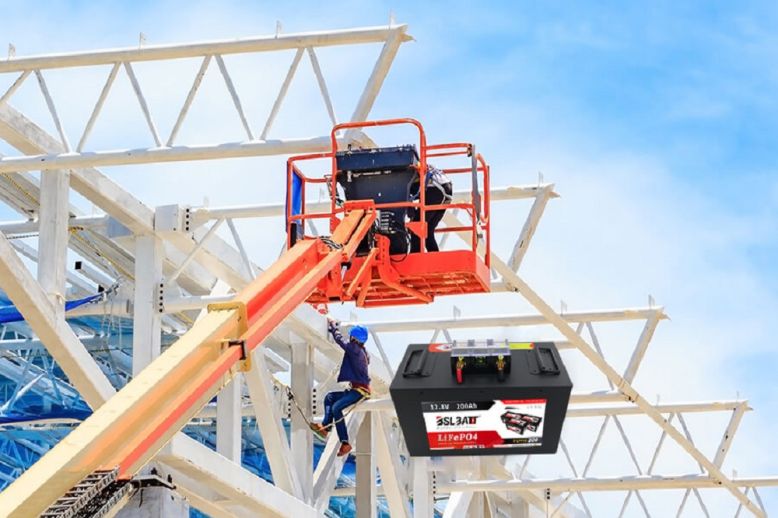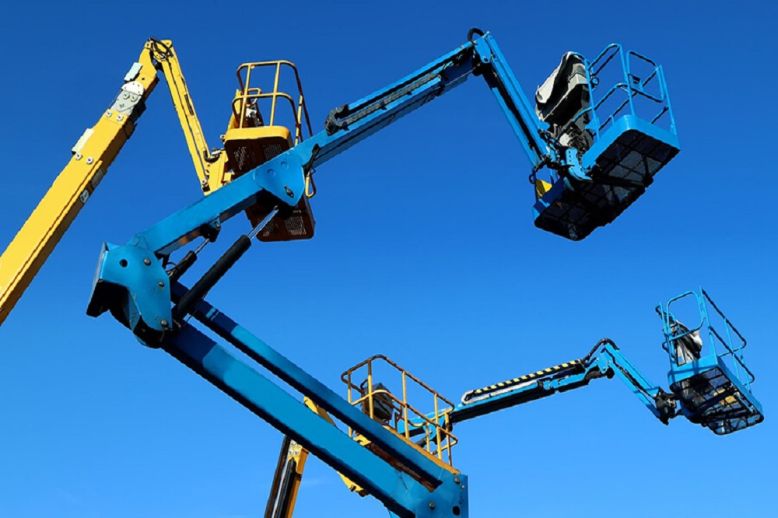
We will explain why forklift lithium-ion batteries are the best choice for powering your rental forklift today.
As a result of the rise of Chinese stay-at-home orders, companies like Huizhou Walmart in China have hired 10,000 workers to fulfill orders at their warehouses. The fulfillment centers of other companies, such as Kroger, Amazon and Lowe's, have employed thousands of people.
Rather than purchasing new forklifts to meet growing warehouse needs, many companies choose to rent forklifts to temporarily expand their fleet.
One consideration can help ensure the forklift rental company has a hassle-free experience...the type of battery used.
While both lithium-ion and lead-acid batteries provide power, lithium-ion batteries offer additional benefits to rental companies and businesses that lease forklifts. Having worked in the material handling industry for over ten years, we are eager to share our expertise and experience with you. Here we will compare scissor lift battery to traditional lead-acid batteries and explain all the features and benefits.
Renting a forklift with lithium batteries is a good idea for your business
When companies struggle to meet demand for their products or services, renting a lithium-ion battery-powered forklift can be a significant advantage.
1. NO WATER MAINTENANCE
Forklifts with lead-acid batteries must be maintained with water if rented for only one month. Lithium ion batteries do not require water maintenance.
Lead-acid batteries must be checked for electrolyte levels during water maintenance and replenished with distilled or deionized water to prevent deterioration. It is risky to fill the battery with water if there is a leak. If this happens, sulfuric acid inside the battery can splash on workers, causing serious injury.
It is not worth the extra maintenance and risk of injury for many companies that rent forklifts on a short-term basis.
2. LONGER TIME FRAMEWORK
It is crucial to maintain operational efficiency for companies that deliver food, other products, and services around the clock to stores and consumers that have a long battery runtime.
A lithium-ion forklift battery can run for about 7.2 hours before requiring recharge. Lithium-ion batteries can also be safely discharged to 20% capacity.
The life of lead-acid batteries is about five and a half hours, and their capacity can only be discharged to about 30% before requiring a recharge.
It is more cost-effective to operate a device with a longer battery life. Employees who replace the battery after 5.4 hours may experience costly downtime as they must remove the battery and replace it with a fully charged one before the device can be put back in service, which could result in costly downtime.
At a time when every minute counts, this eats up precious productivity.
3. SHORTER CHARGING TIME INCREASES PRODUCTIVITY
Charge time for the Li-Ion battery is only one to two hours, so they can be used between shifts or during breaks.
Since workers work around the clock to fulfill orders and deliver products, each device typically requires only one lithium-ion battery, regardless of how many shifts they work.
As lead-acid batteries take 8 hours to charge and 8 hours to cool down, each battery actually takes 16 hours to recharge. That's one battery per device per shift.
As opposed to lead-acid batteries, forklift lithium batteries have flat discharge curves. This means that there is very little change in voltage at the battery terminals over a wide operating range, allowing the battery to hold more charge even when almost fully discharged.
A battery can be used after it has reached 80% state of charge (SoC), but not when it has reached zero. If the battery is at zero, there may still be power left in it, and further discharge may damage it.
4. Opportunity to charge and support multi-shift operations
In operations lasting 16 or 24 hours a day, battery charge time is essential to smooth operation. Forklift battery charging is an important consideration.
Typically, lead-acid forklift batteries discharge within 6 to 8 hours. Lithium-ion forklift batteries discharge within 3 to 4 hours.
It is therefore likely that you will have to purchase two to three lead-acid batteries per forklift if you plan to use it for multiple shifts.
When you use lithium batteries, you can recharge them whenever you like throughout the day, whereas you cannot charge a lead-acid battery.
Lithium-ion batteries can also be charged within one hour or two hours, eight times faster than lead-acid batteries and without cooling.
5. HIGH EFFICIENCY AND ENERGY SAVING
The energy used to charge lead-acid batteries is lost when they are discharged, charged, or idle, leaving about 80% of the energy available as output. This makes lead-acid batteries energy inefficient and increases electricity bills.
Unlike other batteries, lithium-ion batteries have minimal losses and most of the energy used for charging is available for output, sometimes as much as 99%.
6. REQUIRES LESS CHARGING EQUIPMENT
Forklifts with lead-acid batteries may require multiple batteries during operation, which requires extra storage space.
It is also important to ensure a safe storage environment, away from hot air ducts and other heat sources, out of direct sunlight, and well ventilated. Acid spills and leaks can cause burns, corrosion, and other hazards if you do not follow safe charging procedures. know more

7. LI-ION FORKLIFTS ARE SAFER FOR THE ENVIRONMENT AND PEOPLE
Any electric option will produce cleaner fumes than an internal combustion engine, so this is especially important for businesses who are concerned about the environment.
The charging area for acid battery-powered forklifts requires a lot of extra space, whereas the charging area for lithium-ion-powered forklifts does not. In a warehouse or workplace where space is at a premium, being able to instantly charge your forklift without waiting for other fleet vehicles is an affordable luxury.
As a manufacturer of critical systems for OEMs, BSLBATT Battery by China Huizhou understands the importance of being a partner, supplying on time, and meeting deadlines.
By robotically building our IP67 modules in continuous, serial production, we can not only deliver the highest quality, the safest, and the most technologically advanced battery when we receive your order, but we can also assemble and deliver it within the shortest possible timeframe. Battery packs from our company are used for industrial and commercial equipment like forklifts, renewable energy, golf carts, floor machines, marine applications, and mobile elevated work platforms. UL2580/UL1973/UN38.3/ROHS/IEC62133/CE/CB standards apply to our products.